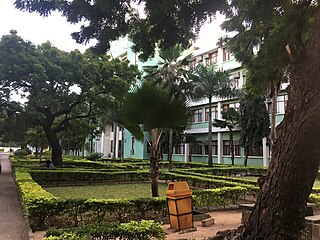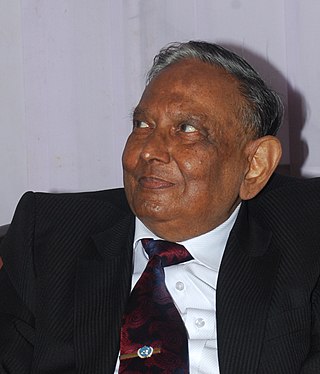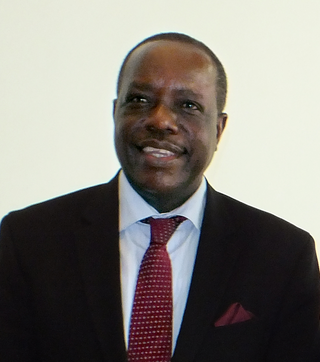Related Research Articles

Dar es Salaam is the largest city and financial hub of Tanzania. It is also the capital of the Dar es Salaam Region. With a population of over nine million people, Dar es Salaam is the largest city in East Africa by population and the sixth-largest in Africa. Located on the Swahili coast, Dar es Salaam is an important economic center and one of the fastest-growing cities in the world.

Tanzania, officially the United Republic of Tanzania, is a country in East Africa within the African Great Lakes region. It is bordered by Uganda to the northwest; Kenya to the northeast; the Indian Ocean to the east; Mozambique and Malawi to the south; Zambia to the southwest; and Rwanda, Burundi, and the Democratic Republic of the Congo to the west. According to the 2022 national census, Tanzania has a population of around 62 million, making it the most populous country located entirely south of the equator.

The University of Dar es Salaam (UDSM) is a public university located in Ubungo District, Dar es Salaam Region, Tanzania. It was established in 1961 as an affiliate college of the University of London. The university became an affiliate of the University of East Africa (UEA) in 1963, shortly after Tanzania gained its independence from the United Kingdom. In 1970, UEA split into three independent universities: Makerere University in Uganda, the University of Nairobi in Kenya, and the University of Dar es Salaam in Tanzania.

Aga Khan University is a not-for-profit institution and an agency of the Aga Khan Development Network. It was founded in 1983 as Pakistan's first private university. Starting in 2000, the university expanded to Kenya, Tanzania, Uganda, the United Kingdom and Afghanistan.

The Hubert Kairuki Memorial University (HKMU) is a private medical university located in Mikocheni ward of Kinondoni District of Dar es Salaam, Tanzania. It is an accredited university recognized by the government Tanzania through the Tanzania Commission for Universities. HKMU is a World Health Organization recognized medical university and appears in the International Medical Education Directory (IMED).

Sokoine University of Agriculture (SUA) is a public university in Morogoro, Tanzania, specializing in agriculture. The university is named after the country's second prime minister Edward Sokoine.

Muhimbili University of Health and Allied Sciences (MUHAS) ( Chuo Kikuu cha Afya na Sayansi Shirikishi Muhimbili, in Swahili) is a public university located in Upanga West, Ilala District of Dar es Salaam Region in Tanzania. It is accredited by the Tanzania Commission for Universities (TCU).

Kampala International University (KIU) is a private, not-for-profit institution based in Uganda. It was established in 2001 and assumed chartered status in 2009.

Uppugunduri Aswathanarayana was the Honorary Director of the Mahadevan International Centre for Water Resources Management, India. He is counted among the doyens of geology in independent India and revered as a leading scientist from Andhra Pradesh.

Sospeter Mwijarubi Muhongo MP is a Tanzanian geologist and a nominated member of the Tanzanian Parliament.

Martha Mlagala Mvungi was a Tanzanian novelist, short-story writer, academic and teacher. She wrote in both Kiswahili and English.
Science and technology in Tanzania describes developments and trends in higher education, science, technology, innovation policy, and governance in the United Republic of Tanzania since the turn of the century.

Ocean Road Cancer Institute (ORCI) is a public, specialized, tertiary care medical facility owned by the Tanzania Ministry of Health and Social Welfare. It is the largest comprehensive cancer center in the country.
Bugando Medical Centre (BMC) is a tertiary care medical facility owned by the Episcopal Conference of the Catholic Bishops of Tanzania. The hospital is operated in collaboration with the Tanzania Ministry of Health and Social Welfare.
Dr. Winnie Mpanju-Shumbusho is a Tanzanian paediatrician and public health leader who until December 31, 2015, served as World Health Organization (WHO) Assistant Director General for HIV/AIDS, Tuberculosis, Malaria and Neglected Tropical Diseases based in Geneva, Switzerland. From 2016 to 2019, she served as board chair of RBM Partnership To End Malaria. Before joining WHO in 1999, Mpanju-Shumbusho was Director General of The East, Central and Southern African Health Community (ECSA-HC) formerly known as the Commonwealth Regional Health Community for East, Central and Southern Africa (CRHC-ECSA).
Fred Mhalu is a microbiologist and medical researcher from Tanzania. His main area of study revolves around infectious diseases and intervention. Ever since 1986, he has been a main contributor to the information about AIDS in Africa. As a co-coordinator of a Tanzanian-Swedish research collaboration called TANSWED, he was involved in many research projects that lead to multiple publications in medical journals. His more recent research on HIV/AIDS involves studying breast cancer in HIV prevalent areas, evaluating prevention of mother-to-child-transmission of HIV-1, and observing sexual behaviors of high risk populations for HIV-1.
Japhet Killewo is a Tanzanian doctor and epidemiologist in Kagera, Tanzania. He was the former Chair of Tanzanian Public Health Association and currently an epidemiology professor at Muhimbili University of Health and Allied Sciences (MUHAS). His research area focuses on HIV/AIDS epidemiology research in Kagera region in Tanzania. As a clinician, he also focuses on AIDS control and mother-to-child intervention in Tanzania. As a scholar, he publishes actively in international journals and participated in many projects across the globe, which are organised and supported by the European Union, as well as World Bank and USAIDS.

Irene Aurelia Tarimo is a Tanzanian environmental scientist and educator. She currently serves as Head of Department of environmental studies at the Open University of Tanzania (OUT), where she is also a lecturer and a researcher. She previously served as OUT Director in the Lindi Region since 2007 to 2015.

Mkunde Chachage is a lecturer and researcher in immunology at University of Dar es Salaam Mbeya College of Health and Allied Sciences. She is also a researcher at the National Institute for Medical Research at Mbeya medical research centre. She conducts research in clinical immunology as well as infectious diseases of human including Tuberculosis (TB), HIV and helminths infections.
Scholastica Kimaryo is a Tanzanian life coach and women's rights advocate, who formerly worked as an international civil servant and journalist for three decades. Born in the Kilimanjaro Region of Tanzania, she fought against tradition to earn her secondary and tertiary education. After attending the Girls' High School in Tabora, in 1971 she earned a Bachelor of Science in home economics through a cooperative arrangement with Victoria University of Manchester and the University of East Africa, of Nairobi. She worked as a journalist and earned a post-graduate diploma in journalism from the University of Dar es Salaam, in a programme sponsored by the government-owned Tanganyika Standard.
References
- 1 2 Professor Esther Mwaikambo, Maternity Africa, October 7, 2016. Accessed March 19, 2016.
- ↑ T. N. Mshuza, Uhuru, February 13, 1971. Cited in Andrew Ivaska (2011). Cultured States: Youth, Gender, and Modern Style in 1960s Dar Es Salaam. Duke University Press. pp. 114, 237. ISBN 978-0-8223-4770-5.
- 1 2 De Esther D. Mwaikambo, American Academy of Arts and Sciences .
- ↑ Donald Mmari and Samuel Wangwe, eds., Research and Policy Nexus: Perspectives from Twenty Years of Policy Research in Tanzania, 2017.
- ↑ Jon Chase, Wanted: Doctors for Africa, The Harvard Gazette, October 28, 2009. Accessed March 19, 2020.
- ↑ Media challenged to promote local scientific innovations, IPP Media, September 1, 2018.
- ↑ Middlebury President Laurie Patton Elected to American Academy of Arts and Sciences, Middlebury College News and Events, April 18, 2018. Accessed March 19, 2020.